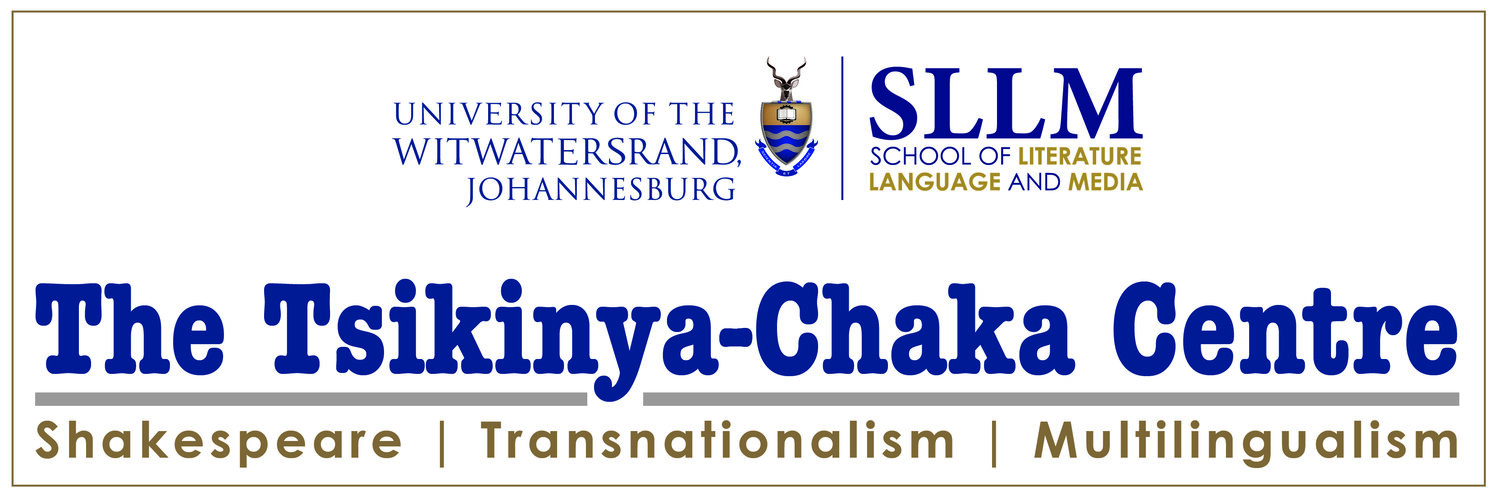Shakespeare in the “Post”Colonies
Amrita Dhar
TCC affiliate Amrita Dhar of Ohio State University is the Project Director and Principal Investigator of Shakespeare in the “Post”Colonies, an exciting new online resource for scholars, teachers, students, creative practitioners and anyone who wants to gain insight into the rich world of “postcolonial Shakespeareans at work”.
Two years in the making, the recently-launched platform features interviews with performers, writers, directors and translators (including a number of artists who combine all these roles)! In addition to the high-quality audio format, the interviews are available as full transcripts accompanied by photos, videos, hyperlinks and more.
Another Tsikinya-Chaka Centre affiliate, Amrita Sen of the University of Calcutta, is also a collaborator on the project. Sen and Dhar are joined by Co-Principal Investigator Adélékè Adéèkó in a pilot conversation that sets out the origins and parameters of the series. And the TCC is well represented among the other interviews presented on the site - which are also available via Apple Podcasts - in conversations between TCC Director Chris Thurman and 2022 Artist in Residence Anelisa Phewa, and between Thurman and TCC affiliate Tonderai Munyevu. The stellar line-up of interviewees includes Vishal Bhardwaj, Lolita Chakrabarti, Margaret Harvey, Iqbal Khan, Madeline Sayet and Preti Taneja. In addition, Shakespeare in the “Post”Colonies boasts original music by Sushmitha Ravikumar and artwork by Evan Williams, with Graduate Research Associate Kayley DeLong completing the team.
Shakespeare in the “Post”Coloniesi by Evan Williams
In her introduction to the project, Dhar opens with some pertinent and difficult questions: ‘What does it mean to “do” Shakespeare in places of past or continued colonialism? Who – or more accurately, what – is Shakespeare today in places that were once under political colonization? Or in places that still remain colonized, although in a different guise? Considering the role of Shakespeare in the imperial missions of the British Empire, how strange or expected is it that Shakespeare continues to live “native” in so many places across the world today? What is the use and the meaning of the many Shakespeares that travel in and traverse worlds far, far afield from the English Stratford-upon-Avon or sixteenth- and seventeenth-century London? How do the various twenty-first-century Shakespeares worldwide impact current questions of Indigenous rights, marginalized identities, and caste politics in so-called post-colonial spaces, in times after the ostensible end of Empire?’
A key and complicating factor is thus that tricky prefix, “post”. Dhar continues:
‘The violence of colonialism is such that there can be no truly post- (in the sense of after) colonial state, only a neo-colonial one. Whether under settler-colonialism (as in the US and Canada, Australia, New Zealand) or extractive colonialism (as in the Indian subcontinent, the Caribbean, and the African continent), the most disenfranchised under colonial rule have only ever changed masters upon any political “post-”colonialism.
Ariel of the Elements by Evan Williams
Given the massive continued presence of Shakespeare everywhere that British colonial reach flourished, and the conviction among educators, theatre practitioners, and creative artists of various stripes today that the study of Shakespeare can and should inform the language(s) of resisting injustice, the Shakespeare in the “Post”Colonies project explores the reality of twenty-first century Shakespeares in geographies of post-colonial / “post”colonial / postcolonial inheritance, such as the Indian subcontinent, continental Africa, the Caribbean, Australasia, and indeed, North and South America. This project asks what this presence of Shakespeare means for our world of strange mobilities and forced borders, great estrangements and deep loyalties, distinct identities and shared commitments.
The interviews that constitute this project discuss a range of encounters, affections, alliances, resistances, journeys, and engagements with Shakespeare by postcolonial creatives from varied fields such as film, theatre, literature, translation, adaptation, journalism, and pedagogy.
Our conversations engage with how Shakespeare is accessed in multiple parts of the world today. They consider the commonalities and the differences, and indeed, the reasons, for this wide access of Shakespeare. They think about why and how Shakespeare continues to be relevant, even important, in worldwide local, vernacular, and Indigenous registers. They ponder the power of Shakespeare’s language, stories, and themes — even and sometimes especially when removed and distant from the original(s). They think about syllabi and expectations, class and caste, freedom and bondage, imitation and appropriation, attraction and resistance, love and wonder. They discuss the relationships between the local and the global, and the powers and surrenders of each. They consider the connections between postcolonial studies and critical race theory. They provide perspectives on historical pasts and contemporary social movements.
Visitors by Evan Williams
If you have (ever had) a “Shakespeare requirement” at school or college, this project is for you. If you have been moved or thrilled (or horrified or bored) by Shakespeare’s plots or plays or poems, this project is for you. If you have ever loved Shakespeare or hated Shakespeare, this project is for you. If you have ever performed — or thought of adapting or translating or performing — Shakespeare, this project is for you. Finally: if you have ever wondered what the fuss is all about with Shakespeare, this project is for you.
Shakespeare does not have answers for our fraught world today and cannot give us any. Except, that is, by our own hard work, interpretation, and critical thinking. For reasons both terrible and terrific, Shakespeare lives with us today, and can give us to one another as we converse, discuss, move, be moved, and engage with one another.’
Text and images taken from Shakespeare in the “Post”Colonies




